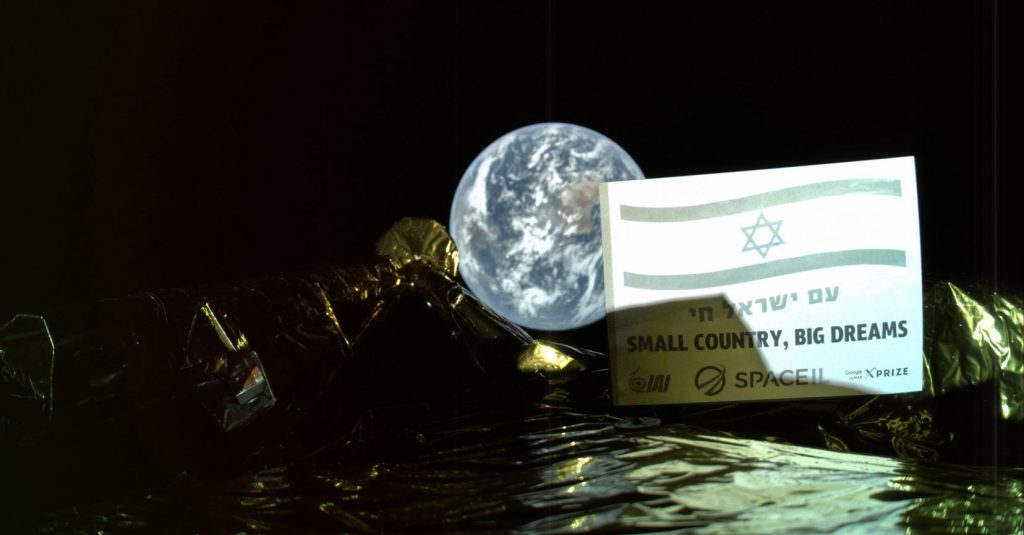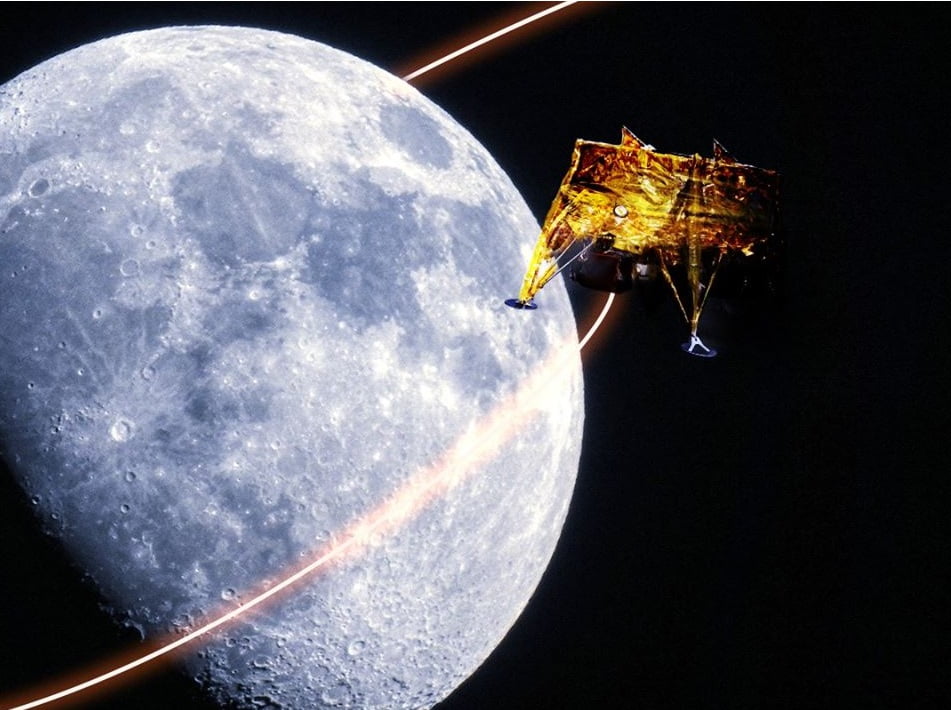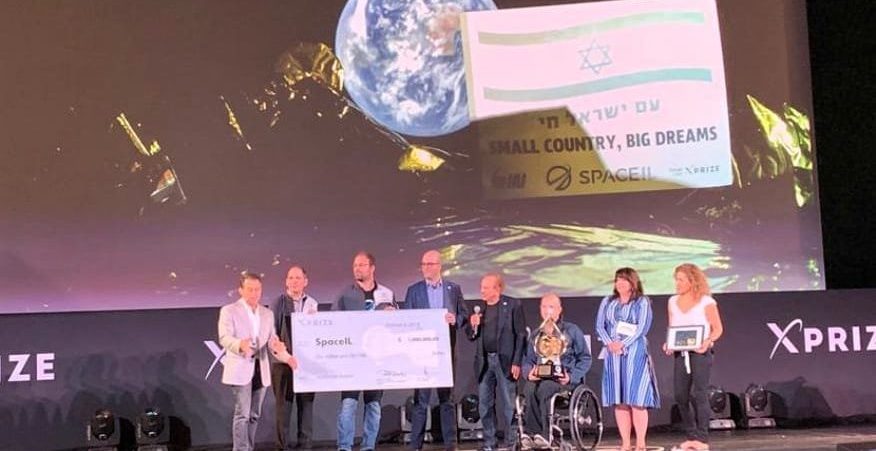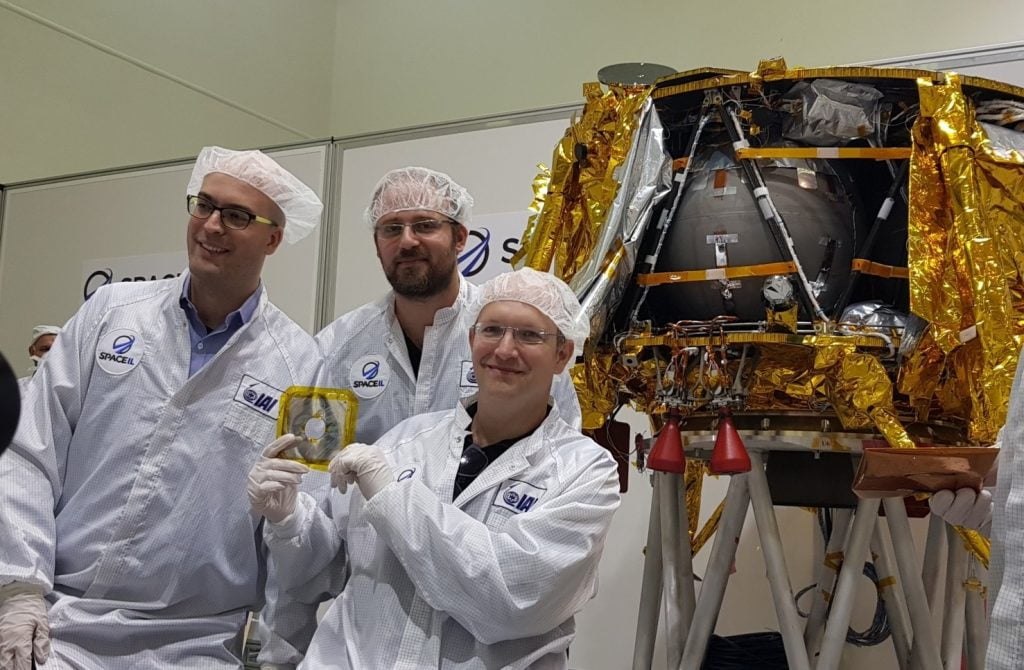The Blavatnik Family Foundation announced on Wednesday that it provided a $1 million grant to SpaceIL, the Israeli non-profit organization behind Israel’s efforts to reach the moon last year. The foundation said the grant would support SpaceIL’s Beresheet 2 spacecraft program and contribute to the goal of landing an unmanned Israeli spacecraft on the lunar surface as well as putting Israel’s first nanosatellite in lunar orbit.
SpaceIL’s Beresheet (Hebrew for “Genesis”) spacecraft, built together with Israel’s Aerospace Industries (IAI), crash-landed on the moon last April as it tried to complete the final leg of its journey. The spacecraft was launched successfully on February 22, 2019 riding piggyback on a SpaceX Falcon 9 rocket. It orbited the Earth and then the moon, traveling 6.5 million km before attempting its doomed landing. The mission dashed Israel’s hopes of becoming the fourth country in the world (after Russia, China, and the US) to complete a controlled moon landing, but it still broke ground on lunar initiatives. It was a largely privately-funded moon mission, operating on a relatively modest budget (for a space mission) of approximately $100 million. Beresheet was also the smallest spacecraft ever built, by the smallest team to ever build a spacecraft, and traveled the largest distance to the moon.
SEE ALSO: SpaceIL Receives XPrize’s $1 Million Moonshot Award For Beresheet Lunar Mission
After the crash, SpaceIL announced that it would launch a second moon mission with a Beresheet 2.0 spacecraft but quickly scrapped the plan to focus on “another, significant objective.”

In the announcement on Wednesday, the Blavatnik Family Foundation said the new grant will enable SpaceIL to recruit a new CEO to drive plans for Beresheet 2 forward.
“Israel is internationally known for its groundbreaking achievements in science and technology, and holds unlimited potential for achieving astounding breakthroughs in space exploration”, said Len Blavatnik, head of the Blavatnik Family Foundation. “The Israeli spirit of innovation and determination is well-suited to drive the Beresheet program to new heights and make Israel a leader in space.”

“We’re honored to welcome Len Blavatnik to the SpaceIL family”, said Yariv Bash, co-founder of SpaceIL. “We have full confidence in Beresheet 2 and our outstanding team, and we’re excited at what the future holds for SpaceIL, for Israeli space innovation and space exploration at large.”
“We’re really happy. There’s still a long way to go but we’re excited that Len Blavatnik is joining SpaceIL. The Blavatnik Family Foundation already supports many institutions and we’re excited Len chose to support SpaceIL,” Kfir Damari, also a SpaceIL co-founder, said.
Damari tells NoCamels that the initial plans for Beresheet 2 will include a moon landing as well as putting Israel’s first nanosatellite in lunar orbit.
Sign up for our free weekly newsletter
Subscribe“We’re planning on taking a nanosatellite with us to the Moon,” said Damari. “It will be the first Israeli satellite around the moon. After releasing the nanosatellite into orbit, we’ll then land a spacecraft on the Moon.”
When asked when he thinks Beresheet 2 may launch, Damari said, “again, there’s still a long way to go. What’s important is we’re starting.”
The $1 million grant “is the first million of what is needed” for SpaceIL’s Beresheet 2 plans, he adds.

In October, SpaceIL was awarded the first-ever Moonshot Award of $1 million by the XPrize competition.
XPrize, which previously partnered with Google for the now-defunct Google Lunar XPrize competition, first announced that SpaceIL would be the recipient of the award in April, hours after SpaceIL’s Beresheet crashed.
SEE ALSO:Texas Aerospace Firm Firefly To Use SpaceIL’s Beresheet Lander Tech For NASA Moon Missions
The prize was far less than the $20 million offered by the then-Google Lunar X Prize competition challenging the world’s engineers to create and send the first private lander to the moon. That competition served as the inspiration for the Beresheet lander, initially conceived in 2011 as part of a dream by Bash, Damari and Yonatan Winetraub – all engineers – to take part in the contest.
Related posts

Editors’ & Readers’ Choice: 10 Favorite NoCamels Articles

Forward Facing: What Does The Future Hold For Israeli High-Tech?

Impact Innovation: Israeli Startups That Could Shape Our Future




Facebook comments